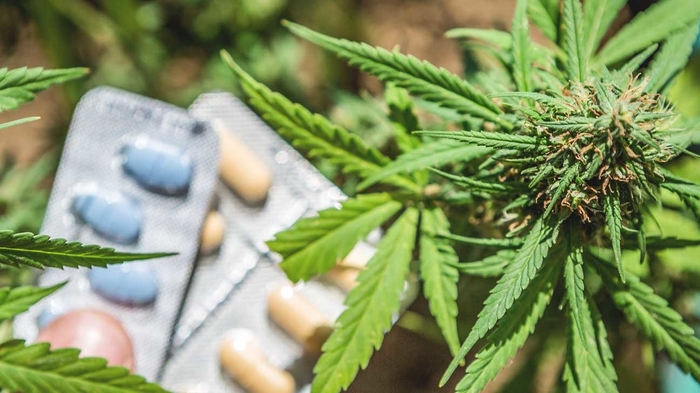Board of Physicians Says NO to Adding New Conditions
As I sit, preparing for my day and putting together my daily medicine I couldn’t help but feel reminiscent of my days filling those daily pill containers. Thankfully those days are over, these days life is more fun and fulfilling. I got to stop and think more about the Department of Consumer Protection’s Board of Physicians inability to add Opioid Use Disorder/Opiate Withdrawal and Progressive Degenerative Disc Disease of the Spine to the list of debilitating conditions to qualify for the use of cannabis and it saddens me. It is hard not to think how many people are out there who are suffering because of opiate related addition. So many of us have been affected, if not directly, then maybe we have a family member or loved one affected.
Since 2012, over 3,000 people have died to opiate addiction in the state of Connecticut. We are one of two states which do not authorize opiate addiction as a qualifying condition to access cannabis. How can we sit here and ignore the fact that states that legalize medical cannabis for opiate related issues are experiencing a 25% drop in opiate related hospitalizations and deaths. I am not a doctor nor do I have extensive experience with opiates, however that doesn’t mean I don’t see the power and potential additional benefit this plant can get provide.
How is it that the State of Connecticut can argue against 20+ other medical programs that have seen positive outcomes by treating the opiate crisis with cannabis? Why is it that we have doctors associated to the pharmaceutical industry as active board members of DCP Medical Marijuana Program’s Board of Physician? One specifically, Dr. Deepak Cyril D’Souza reported a financial relationship with Insys Therapeutics, which develops pharmaceutical cannabinoid products. The DEA has indicated that it will offer Insys the exclusive right to manufacture and distribute its synthetic forms of Marijuana and Tetrohydrocannibidiols as Schedule II rather than Schedule I substances allowing them to be prescribed for certain medical conditions. How is this acceptable?
Oh, Did I Forget to Mention…
Insys recently faced legal action related to its opioid-related products, which were falsely marketed. While the fentanyl spray was only meant for cancer patients, the CEO, former executives, and former managers allegedly bribed practitioners to prescribe “Subsys” to patients who were not diagnosed with cancer to increase profit margins. The FBI arrested its former CEO, John N. Kapoor, and five other executives in October on charges of racketeering related to the case. The company is also developing a product to treat opioid overdoses and is currently in Phase 2 of FDA trials for the development of a synthetic form of CBD. So yeah…WTF!!!
How is it that we as patients can understand that there’s a conflict of interest with his appointment to the board and yet the state does NOTHING! The mere presence of those who stand against cannabis regulation have no right to be included in the decisions for its medical justification in our program. This is why our program has not advanced like that of other states. I’m truly starting to doubt why I pay to participate in this program. It seems we are strictly limited in what we can consume and we are required to pay extortion prices for medicine with no financial or insurance assistance.
What Does DCP Stand For?
Recently the DCP attempted to amend the medical program to require that all patients keep their medicinal purchases in their original containers. I still do not understand their intent? They would say it would be easier for policing efforts, however I would refute that it’s easy to identify weights and measures with minor training. They also attempted to mandate that patients only utilize dispensary outlet by tracking and monitoring patient activity. The DCP wanted to place an expiration clause on licenses, so if a patient did not use a dispensary within a 6 month period their right to medicinally use cannabis was removed. I would say that doesn’t guarantee patients access, but guarantees that the monopoly keeps getting fed. It is bad enough that we were paying for 12 months of access and only receiving 11 months before we all were required to pay again.
The DCP should not be able to dictate where I purchase my medicine, but instead should concentrate on ensuring there is a safe and regulated place where we all can purchase medicinal offerings. The DCP cannot tell me where I need to buy my aspirin, I get to go anywhere I want without question. Why should cannabis be any different? As educated consumers, we should all understand what are our individual needs and expectations. Paying an annual fee for access to cannabis is not only outrageous, but should be illegal. As a patients we should not have to prove our conditions still exist. The DCP and the participants in the medical program need to understand that patients come first. Access to cannabis, should not be the last resort, but a first option.
What Can We Do?
Can we consciously object to referring individuals to check out the recreational industry in Massachusetts? The State of Connecticut and the Department of Consumer Protection are not making resident health a priority. We all need to push for home grow rights and recreational access. Prices need to drop and like beer or even produce, we should all be able to grow at home for personal consumption. This program is about to see the ramifications of legalization in Massachusetts. It does not make sense financially, for a patient to pay $45 for a half gram of concentrate, when across the state border for $50 we can all get a full gram of the same concentrate. Patients come first, not second.
Commissioner Michelle Seagull, I implore you, please get your house in order.
Check out Dabbin Dad for all your strain information. Know your medicine.



